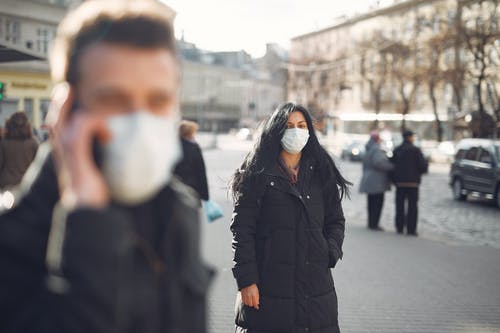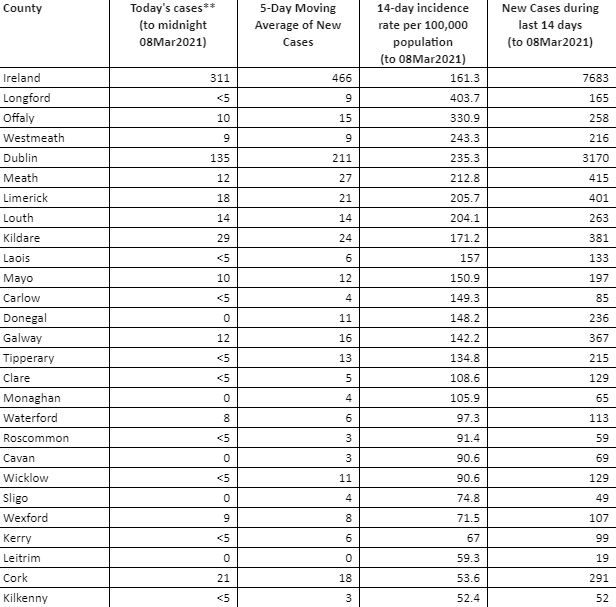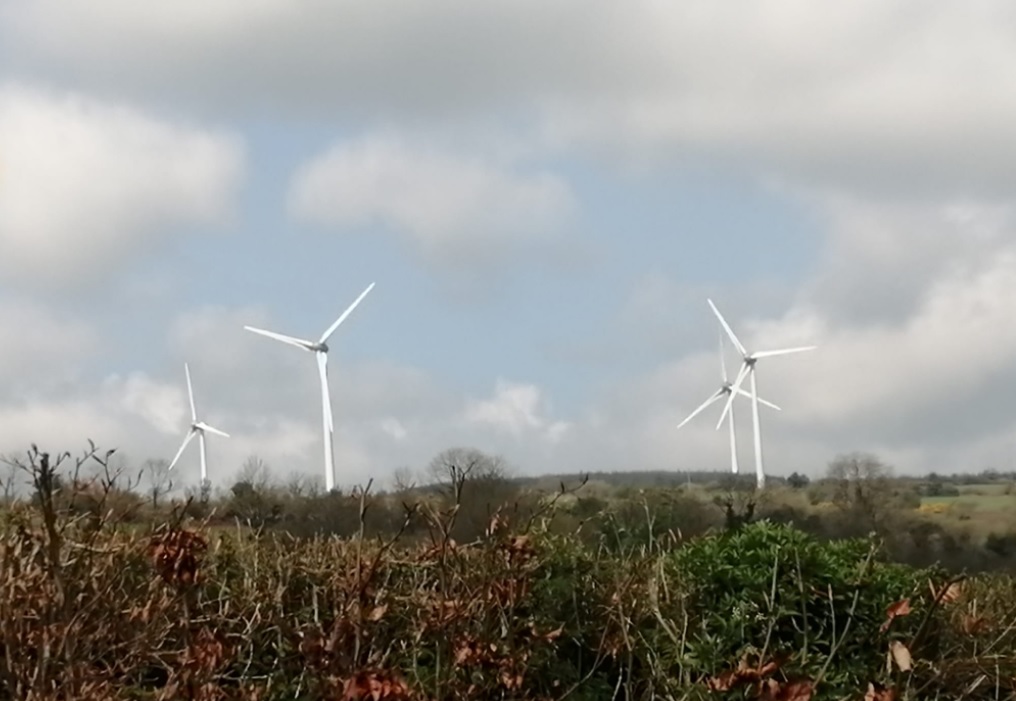Kilkenny’s going for a three-in-a-row, but not on the sporting field.
For the second consecutive day the county had the country’s lowest 14-day incidence rate.
It’s at 52.4 per 100,000, less than a third of the national figure of 161.3. While Carlow’s at 149.3.
It’s as 30 new deaths were reported last evening with 311 new infections, up to four more each in Carlow and Kilkenny.
Hospitals
The number of Covid-19 patients in public hospitals dropped to 371 last night, which is over 100 fewer than a week earlier.
93 are in intensive care the lowest in more than two months, just two are in the unit at St Luke’s General for Carlow and Kilkenny, among seven at the hospital after two new admissions.
University Hospital Waterford also had two new admissions, bringing its patient total to 20 with five in ICU and another two showing symptoms.
Dr Alan Gaffney is an ICU consultant in Beaumont Hospital in Dublin, and vice-president of the Intensive Care Society and he says critical-care units are still very busy, for two reasons.
GP Visits
The number of patients going to GPs with symptoms of Covid-19 has dropped to its lowest level since last August.
Dr Shane McKeogh is from GP Buddy, which tracks calls to surgeries around the country, he says the fall has been dramatic.
While a study’s found people who’ve had Covid-19 should avoid having pre-planned surgery for seven weeks.
Researchers say death rates are higher for those who’d had an operation in the first few weeks after testing positive with the virus.
Patients were also more likely to be at risk of post-surgery death if they had ongoing symptoms.
It comes as scientists are carrying out research to try to predict who could become seriously ill from Covid-19.
A pilot study will examine randomised blood samples from hospital patients to compare how their immune systems react to the virus.
Evidence suggests some people who’ve tested positive become very sick after having a massive inflammatory response, which can lead to organ failure and death.
Vaccine
A leading virologist is backing calls for Ireland to use the Russian Covid-19 vaccine, to address supply problems here.
Russia yesterday signed a deal to produce the Sputnik injection in Italy, its first contract in the European Union.
The European Medicines Agency has started a rolling review of the vaccine.
Dr Gerald Barry, an assistant professor of virology in UCD, says the Irish government should strongly consider getting doses of it.
Meanwhile, the government is being urged to back an emergency proposal aimed at waiving intellectual property rights on Covid-19 vaccines.
Oxfam Ireland says pharmaceutical companies should be made share their details to boost global production.
The issue’s being raised at the World Trade Organisation this week and is backed by more than 100 developing countries.
Chief Executive of Oxfam Ireland, Jim Clarken, says Ireland needs to support the measure.
Elsewhere
The UK is accusing the European Union of making “completely false” claims surrounding vaccine exports.
Britain’s Foreign Minister Dominic Raab has written to European Council President Charles Michel insisting there hasn’t been a single injection that has been blocked.
He added we’re all ‘facing this pandemic together.’
Meanwhile, Doctors are warning ethnic minority communities are being put at higher risk of coronavirus by the UK’s “colour-blind” vaccine rollout.
Writing in the Journal of the Royal Society of Medicine, they say high-risk groups should get priority, as they’re disproportionately affected by Covid-19.
The UK’s Joint Committee on Vaccination and Immunisation has largely recommended an age-based approach.









